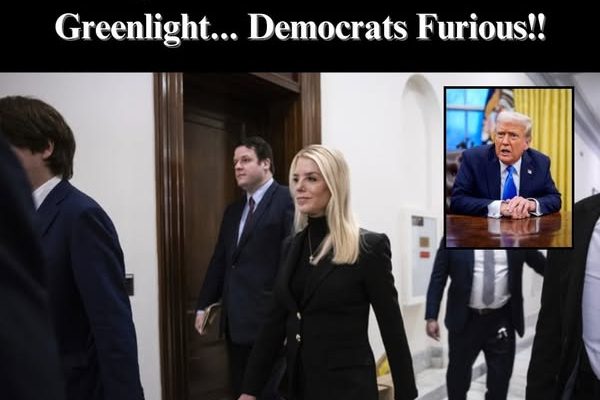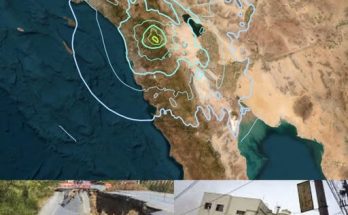In a rare intra‑branch standoff, three senior Trump administration officials—Attorney General Pam Bondi, Secretary of State Marco Rubio, and Homeland Security Secretary Kristi Noem—have collectively invoked the state‑secrets privilege to withhold critical information from a federal judge overseeing the administration’s emergency deportation flights. The flights, undertaken under the President’s recent invocation of the Alien Enemies Act of 1798, aimed to remove hundreds of Venezuelan nationals alleged to be members of the Tren de Aragua criminal organization. U.S. District Judge James Boasberg responded by temporarily blocking any further deportations and demanding detailed flight manifests, routing logs, and passenger lists. In response, the three officials filed court papers late Monday asserting that disclosure of such data would jeopardize national security and strain sensitive diplomatic relationships.
This article provides a comprehensive, professional analysis of the dispute: the legal foundation of the state‑secrets privilege; the procedural history of Judge Boasberg’s orders; the administration’s rationale for rapid removals under the Alien Enemies Act; the substance of the privilege claims; the broader separation‑of‑powers implications; and the potential paths ahead—both in the courts and on Capitol Hill.
1. The Emergency Deportation Directive and Initial Judicial Intervention
1.1 Presidential Invocation of the Alien Enemies Act
On March 1, 2025, President Donald J. Trump issued an executive directive authorizing the immediate removal of Venezuelan nationals alleged to belong to Tren de Aragua, a violent transnational criminal organization designated a “foreign terrorist organization” by the Department of Homeland Security (DHS). Citing the Alien Enemies Act—an 18th‑century statute granting the President broad authority to arrest and deport non‑citizens from hostile nations—the administration announced plans to deport approximately 300 individuals within weeks. Administration officials argued that traditional immigration removal proceedings were inadequate in speed and scope to counter the threat posed by the group’s illicit networks.
1.2 Judicial Pushback: Judge Boasberg’s Temporary Restraining Order
Within days, several detainees affected by the directive sought emergency relief in the U.S. District Court for the District of Columbia. On March 15, Chief Judge James Boasberg granted a temporary restraining order (TRO), halting all further deportation flights under the Alien Enemies Act until the court could address due‑process concerns and determine whether the administration had exceeded its statutory authority. Notably, Judge Boasberg’s TRO was initially issued orally during a telephonic hearing; two deportation flights nonetheless departed before the written order was filed, prompting the judge to demand immediate clarification of what had transpired.
2. Judge Boasberg’s Information Request: Scope and Purpose
Following the March 15 hearing, Judge Boasberg issued a detailed order directing the government to produce, on an expedited basis, a series of documents and data points essential to the court’s oversight:
-
-
Number of Passengers per Flight: A precise head count for each flight that departed before or after the TRO.
-
Flight Manifests and Rosters: Full passenger manifests identifying each individual on board.
-
-
-
Departure and Exit Times: Exact timestamps for takeoff, entry into U.S. airspace, and exit toward Venezuela.
-
Aircraft Tail Numbers and Routes: Identification of the specific aircraft used, including tail numbers, makes/models, and flight paths.
-
Destination Airports: Information on the airports where the flights landed and any intermediate stops.
-
-
Diplomatic Clearances and Overflight Permissions: Documentation of any diplomatic or foreign‑government approvals securing passage through third‑country airspace.
Judge Boasberg explained that these data were necessary both to determine whether the government had complied with his TRO and to evaluate the merits of the detainees’ broader challenge to the removal order’s legality. He emphasized that, absent full transparency, the court could not fulfill its constitutional duty to adjudicate claims of unlawful executive action.
3. The State‑Secrets Privilege: Legal Foundations and Historical Use
3.1 Origins and Purpose
The state‑secrets privilege is an evidentiary doctrine permitting the executive branch to withhold information from judicial proceedings if disclosure would reasonably be expected to harm national security. Rooted in early 19th‑century admiralty law and later formalized in United States v. Reynolds (1953), the privilege protects military secrets, intelligence sources and methods, and sensitive diplomatic communications.
3.2 The Reynolds Framework
In Reynolds, the Supreme Court held that the privilege may be asserted when:
-
-
There is a formal claim, made by the head of the department controlling the matter, that disclosure would damage national security;
-
A court hearing demonstrates that the information in question is indeed a state secret; and
-
-
The court conducts an in camera (private) review of the materials to confirm the claim’s validity.
Subsequent cases have refined the doctrine, but Reynolds remains the controlling precedent.
3.3 Limits on the Privilege
While broad, the privilege is not absolute. Courts have required that the government:
-
-
Identify precisely which documents or testimony are covered;
-
-
Show a logical connection between the material and potential harm; and
-
Explore alternatives short of complete nondisclosure (e.g., redaction, substitution of summaries).
Moreover, in cases where litigants’ claims turn on easily separable, non‑privileged facts, courts have sometimes compelled disclosure of those less sensitive elements.4. The Administration’s Privilege Claims: Bondi, Rubio, and Noem Speak
4.1 Joint Privilege Filings
On March 20, senior government lawyers for Attorney General Pam Bondi, Secretary of State Marco Rubio, and DHS Secretary Kristi Noem each filed two‑page declarations under seal in Judge Boasberg’s chambers. The public docket entries confirmed that all three officials had formally asserted the state‑secrets privilege over the court’s requested information, citing national‑security and diplomatic concerns.
4.2 Attorney General Bondi’s Rationale
In her declaration, AG Bondi explained that releasing flight manifests and routing details “would disclose operational methods and logistical arrangements essential to ongoing national‑security operations against foreign‑terrorist threats.” She warned that public disclosure of specific aircraft and routes could enable hostile actors—whether foreign governments, transnational criminal networks, or terrorist cells—to anticipate, obstruct, or retaliate against future removals. Bondi further asserted that department heads, not courts, possess the constitutional authority to determine which executive‑branch communications remain confidential.
4.3 Secretary Rubio’s Diplomatic‑Relations Concerns
Secretary of State Rubio’s filing emphasized the sensitive diplomatic clearances obtained from Central American and Caribbean transit nations. He explained that publicizing the terms of overflight agreements and landing permissions—even in redacted form—could strain relations with partner governments that had cooperated on short notice. Rubio cautioned that revealing such concessions might deter future cooperation in counter‑terrorism and law‑enforcement initiatives, undermining broader regional security goals.
4.4 Secretary Noem’s Operational‑Safety Justification
DHS Secretary Noem stressed that the Department of Homeland Security frequently relies on specialized aircraft and classified flight‑planning systems to transport high‑risk detainees. She argued that exposing specifics about tail numbers, flight‑planning software interfaces, or escort procedures would compromise the safety of enforcement personnel and the detainees themselves. Noem’s declaration noted that adversaries could exploit the information to mount sabotage or escape attempts, endangering lives.
5. Judge Boasberg’s Response and Procedural Posture
5.1 In Camera Review Order
After receiving the privilege assertions, Judge Boasberg issued an order directing the government to submit the contested materials for in camera review by March 25. He emphasized that the court must independently verify the privilege claims before excising any documents from the public record.
5.2 Balancing Test: National Security vs. Transparency
In his procedural memorandum, the judge acknowledged the gravity of the nation‑secrets privilege but underscored the countervailing presumption of judicial transparency and accountability. He cited Supreme Court precedents recognizing that, in cases alleging executive‑branch overreach, “the public interest in disclosure is particularly strong.” Thus, the court must perform a careful balancing test—protecting genuine state secrets while ensuring that the executive does not improperly conceal evidence of potential constitutional violations.
6. Legal Analysis: Competing Constitutional Values
6.1 Executive Authority and Separation of Powers
The administration’s position rests on two foundational pillars:
-
Unitary Executive Theory: The President—and, by extension, cabinet secretaries—possess exclusive control over national‑security communications and operations, free from judicial intrusion.
-
Statutory Mandate of the Alien Enemies Act: Congress conferred broad removal authority, implicitly granting the executive latitude to determine timing, methods, and operational details without micromanagement by the courts.
6.2 Judicial Review and Due Process
Conversely, Plaintiffs and civil‑liberties advocates argue that:
-
-
Judicial Safeguards Against Executive Overreach: Even in national‑security contexts, fundamental liberties and due‑process rights (including noncitizens’ rights to challenge deportations) require meaningful judicial oversight.
-
Limited Scope of State‑Secrets Privilege: Reynolds demands narrowly tailored assertions; wholesale concealment of all flight data exceeds the privilege’s proper bounds.
-
-
Congressional Intent: While the Alien Enemies Act grants removal authority, Congress did not explicitly abolish all due‑process or transparency requirements.
7. Political and Institutional Implications
7.1 Intra‑Branch Tensions
The clash spotlights a deeper institutional tension within the executive branch: the Justice Department’s interest in robust judicial deference versus the State Department’s concern for diplomatic discretion and DHS’s operational security mandates. The unified privilege assertion masks these varied priorities, presenting the judiciary with a monolithic front—yet the underlying motivations and risk assessments differ among agencies.
7.2 Congressional Oversight Prospects
Lawmakers on both sides of the aisle have signaled interest in investigating the administration’s use of the Alien Enemies Act. In particular, the Senate Judiciary Committee has scheduled hearings to examine whether the Act’s broad language authorizes expedited mass removals without individualized hearings. Should the privilege fight intensify, Congress could compel testimony from senior officials or even legislate clearer standards for state‑secrets assertions.
7.3 Public‑Policy Considerations
At stake is the balance between national‑security exigencies and protection of due‑process rights. Critics fear that unchecked executive removal authority, concealed behind state‑secrets claims, risks wrongful deportations and sets a dangerous precedent for secrecy in immigration enforcement. Advocates for rigorous national‑security measures counter that revealing tactical details endangers ongoing operations and diplomatic leverage vital to regional stability.
8. Potential Outcomes and Next Steps
8.1 In Camera Determination
If Judge Boasberg concludes upon review that the disputed materials genuinely implicate state secrets, he may redact or seal them entirely, permitting the government to maintain the TRO’s enforcement while concealing sensitive details. In that event, the court would proceed to adjudicate the legality of the removals based on unredacted evidence, summaries, or alternative disclosures.
8.2 Narrowing the Privilege Claims
Alternatively, the judge might find that only select categories of information—such as diplomatic‑clearance cables or detailed flight‑planning data—warrant secrecy, while basic facts (number of passengers, dates, general flight paths) may be disclosed. The government would then be compelled to produce non‑privileged data, potentially satisfying the court’s need to assess compliance with the TRO.
8.3 Appeal and Further Litigation
Should Judge Boasberg reject the privilege claims or impose significant disclosure obligations, the administration is likely to seek an immediate appeal to the D.C. Circuit. Given the high‑stakes national‑security dimensions, appellate courts typically give deference to executive assertions of privilege, but they will scrutinize whether the district court conducted the requisite Reynolds inquiries.
8.4 Congressional Action and Oversight
Simultaneously, congressional committees may press for depositions, memos, and unredacted communications from Bondi, Rubio, and Noem—potentially exposing the interagency deliberations that underlie both the deportation directive and the state‑secrets assertions. Should Congress enact legislation clarifying standards for removal or requiring periodic reporting to oversight committees, future conflicts may be mitigated.
9. Conclusion
The unfolding dispute over state‑secrets assertions in the Tren de Aragua deportation case encapsulates a perennial constitutional dilemma: safeguarding legitimate national‑security secrets while preserving the judiciary’s essential role in checking executive power. Attorney General Bondi, Secretary Rubio, and Secretary Noem have staked out a unified front—urging that disclosure of flight manifests, routing logs, and diplomatic clearances would gravely harm sensitive operations and relationships. Judge Boasberg, by demanding in camera review and insisting on narrowly tailored assertions, underscores the courts’ responsibility to probe claims of executive overreach and to protect due‑process norms.
As this battle moves through the D.C. District Court and possibly to the D.C. Circuit and Supreme Court, it will test the contours of the state‑secrets privilege in a high‑profile modern context and clarify the enduring reach of the Alien Enemies Act. Beyond its immediate stakes—hundreds of Venezuelan nationals facing removal—the case will shape the balance of powers among the branches, guide future executive‑branch reliance on centuries‑old wartime statutes, and frame the procedural safeguards for noncitizens in removal proceedings. In an era of intensifying security threats and rapid policymaking, the resolution of this dispute will chart a course for transparency, accountability, and law‑based governance in America’s immigration and national‑security regimes.



